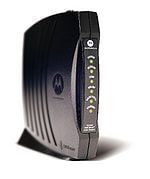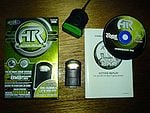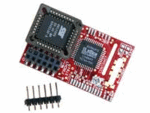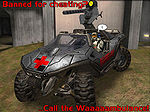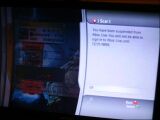Cheating
From Halopedia, the Halo wiki
| This article does not meet the wiki's general standards and/or standards on layouts. You can help by cleaning this article. |
A common complaint regarding Halo's online play has been the widespread Cheating which occurred almost immediately upon the game's release. Users exploited bugs within the game and vulnerabilities of the network to win ranked games and thus increase their matchmaking rank. Though many forms of cheating do exist, and soft mods and hard mods can make a massive number of different types of cheating, the main forms are StandBying, Dummying, Modding, Bridging, Super Bouncing and Button Combos. One or any of these types of cheating will earn players a temporary or permanent ban from Bungie games, or Xbox Live entirely. Though Bungie has put patches in place to restore and protect the gaming experience, cheating is still common within Halo 2. In Halo 3 cheating is much less prevalent but 'cheap' tactics and poor sportsmanship have still interfered with online play.
Forms of Cheating
StandBying
One of the first forms of cheating that took place in Halo 2 was the Standby Cheat. This cheat involved players intentionally pressing the standby button on their modem, freezing the game for other players, giving the cheater time to accomplish their objective. This cheat was heavily exploited by many players, and was quickly realized by Bungie. Players that standby too often would be detected and banned from any and all matchmaking. In the majority of cases from Xbox Live, players would often use this cheat to change the outcome of a game that was previously not in their favor, in order to pad their ranked matchmaking stats.
Suicide Insurance
This form of "cheating" is not technically cheating and is not recognized by Bungie as such, meaning you cannot be banned for it. Suicide insurance is considered poor sportsmanship by the majority of players. During a slayer game, when one team takes the lead, one or more players on that team will commit suicide, reducing the teams score and ensuring the victory of the opposing team.
Boosting
- Main article: Boosting
Boosting is a form of cheating that allows Halo players to gain experience points or achievements through the co-operation of other players in matchmaking or to gain experience points by leaving a number of profiles or guests signed into Xbox Live without anyone actually using them to play. Boosting is most often conducted on free for all playlists or double EXP weekend playlists. Players may boost by either asking for the co-operation of players in the pre-game lobby in helping them earn achievements or deliberately letting them score points or it may involve taking parties larger than the size of a single team into a game. When exceeding team size players may use any party members on the opposing team by leaving that party member without anyone playing them, leaving the other team essentially one man down (or that player acting as an easy target to gain points in slayer games), or the player may use betrayals and suicide insurance to hinder the other team, ensuring the victory of the boosting player's team or on a free for all playlists (e.g. Rumble Pit), if a large enough number of players are brought in one of them will always be in the top three ensuring that experience is always earned.
Modding
Soft Mod
A Soft mod refers to when players use external programs in the game console or their computer to give themselves the unfair advantage in the game. Such programs include Action Replay where players can edit gaming code to enhance their weapons, or give them unlimited health, grenades, etc... By default, Action Replay is a fun tool where players can manipulate game data and access options that are normally reserved for developers. Upon the addition of online multiplayer in Halo 2, however, these features of Action Replay have had devastating effects on ranked or unranked play. Therefore, Bungie and Microsoft have permanently banned users who use Action Replay, or other external programs to modify game data. This type of modding is very popular with the gaming community as it is a cheap, and often easier way to modify game data without opening the system. There are many modifications using soft mod such as:
- Enhanced Health
- Enhanced Weapons
- Unlimited Ammo (and grenades)
- Zombies of Elites.
- In matchmaking, making your team have the advantage.
- Even escaping the map.
There have been many debates whether to use soft mods in Forge and custom games.
Hard Mod
A Hard Mod is the exact opposite of a Soft Mod. Rather that use software to modify the effects and/or outcome of a game, players exploit the hardware of the console through the BIOS allowing the console to play copied or downloaded games, or run unsigned code. This type of mod is more commonly referred to as hacking, as it requires the player to open the system and modify the internal components. The most common use of a hard mod or hardware hack is to play illegal copies of games that players can download from special sites on the Internet. Mod Chips fall under the category of a Hard Mod, as players must open the case, and solder the chip to the console's motherboard. However, in Halo 2, this type of mod allows players to hack into the downloadable maps and modify their properties providing them with new abilities and powers to give them an advantage over normal game players. Bungie has resolved the Hard Mod issue by removing certain maps from matchmaking, and permanently banning any players detected. Below are some features you can use hard mod for:
- Changing a map entirely (Textures, layout, etc).
- Being able to put Warthog turrets on the Ground.
- Able to hack into the Game, revealing holes.
Bridging
Bridging is a network related term that is commonly used in packet-switched networks. Bridging allows players to connect two different network types on a single data link layer, in turn granting that player host status and the ability to disconnect other players from the game session. Players make use of their Internet router and their PC to monitor network connections, detect IP addresses, and in turn gain the advantage. When a player performs this cheat, they have the ability to also boot themselves by losing network connectivity, and in some cases destroying the connections of all players. Players found using this exploit and cheat will be banned from matchmaking by Bungie and/or Xbox Live by Microsoft.
Super Bouncing
- Main article: Super Bouncing
An in-game exploitation known to players and gamers everywhere as Super Bouncing or Super Jumping has been naturally labeled as cheating by many of the Xbox LIVE community. This flawed deed has also been described as cheating by Bungie employees when it is used in Matchmaking, although not everyone is banned for this act. Also, Bungie has not made a patch to fix the cheat, and many players claim that a patch would not be able to fix this exploitation because the game engine would require a complete re-design. The glitch involves a player traveling a certain path, and then jumping onto a specific area of the map, causing the player to bounce to areas of the map that are usually unreachable. This exploit can give players the unfair advantage of sniping points, and could also be used to escape combat forcing a loss for the other team.
In a forum response on Super Jumps, Jeremiah (or more commonly known as Ninja 0n Fire) stated to Bungie.net members that, "Whether it's superbouncing or interrupting weapon animations, just because we don't personally ban you for it doesn't mean it isn't cheating and extremely poor sportsmanship." Source
Button Combos
- Main article: Button Combos
Another group of glitches, which involve the use of certain button combinations to get the upper hand have similarly been described as cheating by both fans and Bungie employees. Terms such as "BxR," "RRx," and "LLx" have been applied to specific exploits relative to the button sequence a player must press. The "BxR" glitch is perhaps the easiest and most common glitch to perform. It is done with the Battle Rifle, and allows players to have an "instant kill" on an opponent by executing a sequence of events; melee an opponent (B), cancel the melee (X), fire a shot (R).

